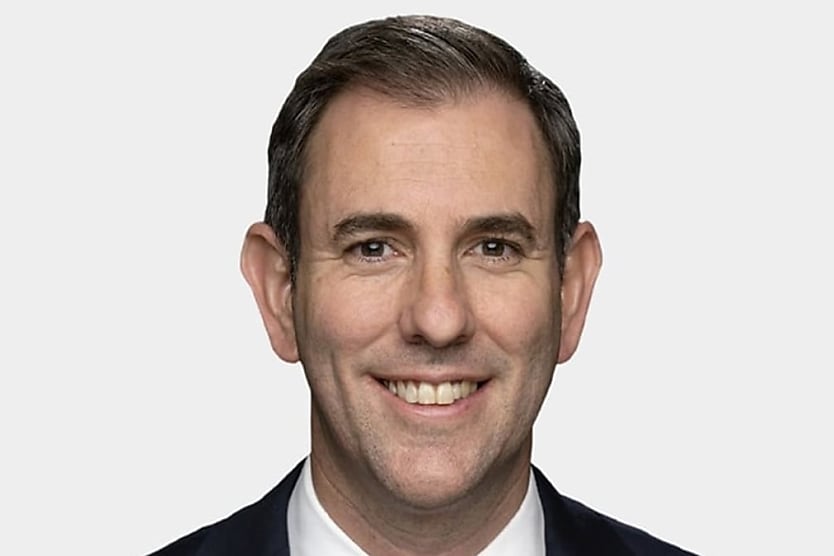Payday super laws introduced to stop ‘disreputable’ employers exploiting workers
SHARE THIS ARTICLE

Advocates and service providers alike have welcomed the introduction of the payday super legislation to Federal Parliament, which the Treasurer says will “put a stop” to wage theft in the form of unpaid super. For some, however, concerns remain about practical implementation.
Yesterday (Thursday, 9 September), the Albanese government introduced the Treasury Laws Amendment (Payday Superannuation) Bill 2025 to Parliament, which will require employers to pay their employees’ super at the same time as their salary and wages. The changes will take effect from 1 July 2026.
In the second reading speech for the bill, Treasurer Jim Chalmers said the need for the reforms was “clear and compelling”.
“While most employers do the right thing, some disreputable ones are exploiting their employees,” he said.
“On the most recent financial year data, there was almost $5.2 billion in unpaid super that should have gone to workers. That’s $5.2 billion that should be helping thousands of Australians in their retirement, but isn’t.”
This issue, the Treasurer continued, “disproportionately” affects more vulnerable Australians and women.
“That’s because those on lower-paid, casual and insecure work – who are more likely to be women – are most at risk of missing out on their super,” he said.
“Super is an entitlement of workers, like salary or wages, and unpaid super is a form of wage theft. This bill will help put a stop to it.”
There is also, Chalmers went on, a productivity dividend: “Smaller, more frequent super contributions will help employers manage their payroll more smoothly. This legislation also redesigns the superannuation guarantee charge to be fit‑for‑purpose and make payday super work.”
“The current charge is a blunt tool that isn’t tailored to employers’ circumstances. And it is complicated for employers to correct late contributions and calculate their liability. The redesigned charge will prompt employers to quickly rectify late or missed superannuation contributions, and it simplifies the process,” he said.
“Employers will no longer need to choose which period their late contribution should count towards or calculate their own liability. This will all happen automatically.”
Time to ‘get this done’
The Super Members Council (SMC) welcomed the “game changer” legislation’s introduction, and urged parliamentarians to “swiftly” pass it.
According to the council’s modelling, in 2022–23, a total of 3.3 million Australians lost an average of $1,730 each a year, which would make people up to $30,000 poorer in retirement.
Payday super, SMC said, is a “simple fix”.
Its chief executive, Misha Schubert, said: “The introduction of payday super legislation has been a long time coming, it’s time to get this done.”
“Payday super is also tipped to deliver an average of an extra $7,700 for working Australians by retirement because being paid your super sooner helps to grow your retirement savings faster.”
Time to stop ‘unacceptable’ wage theft
The Australian Council of Trade Unions (ACTU) said the new laws will “significantly reduce” superannuation theft, which it said disproportionately impacts young workers, women, migrant workers, and those in insecure work.
Requiring employers to pay workers’ super on pay day will make super theft more noticeable, the ACTU said, meaning workers get the benefits of compound interest earlier and retire with more.
ACTU assistant secretary Joseph Mitchell said: “Super theft is unacceptable. Super is workers’ retirement savings, not employers’ money. Paying super on payday is a commonsense way to make it harder for dodgy employers to steal workers’ super.
“Paying super on payday means some workers will retire with tens of thousands of dollars more in superannuation, not just by reducing super theft but by getting their money earning compound interest faster.
“Super theft affects younger workers more, which makes payday super an intergenerational inequality issue. If we’re serious about tackling intergenerational inequality, we must stop super theft, and payday super is critical to stopping super theft.
“Payday super is a long overdue reform. Unions urge the Parliament to urgently pass this legislation to ensure more of workers’ money gets to workers.”
A ‘commonsense’ approach
Elsewhere, business management solutions provider MYOB noted it supports the government’s effort to improve retirement outcomes, with its chief executive, Paul Robson, saying: “MYOB advocates for certainty for small and medium-sized businesses, giving them time to adapt to changes and remain compliant. To this end, we welcome the clarity and confidence the introduction of the Payday Super Bill gives SMEs, ahead of the new superannuation payment requirements.”
Robson said the provider was “pleased to see the government has considered industry feedback and taken a commonsense approach to compliance time frames”, noting the bills reflect a revision of the originally proposed window for compliance from seven calendar days to seven business days.
“Small and medium-sized businesses employ around two-thirds of Australia’s workforce, making their readiness essential to the successful rollout of payday super. Empowering these businesses to implement the changes effectively will be key to achieving the bill’s goals,” he said.
Employment Hero chief executive Ben Thompson said the bill provides “much-needed clarity and certainty”, preparing for what he called one of the most significant payroll and compliance reforms in decades.
“Employment Hero strongly supports the intention of the reform and has consistently advocated for practical implementation that recognises the realities of how small and medium businesses operate.
“We’re pleased to see some of the considerations raised with Treasury reflected in the bill, and we look forward to continuing to consult as it progresses through Parliament,” he said.
Employment Hero further pointed out that its own modelling shows a looming $124,000 working capital gap for SMBs to meet the government’s payday super requirements, while 15 per cent of SMBs are unaware of the changes, one in three say they will need to build cash reserves to stay solvent under the changes, and over one in five may change their pay cycles, despite 84 per cent of employees opposing this.
Implementation concerns
CPA Australia’s superannuation lead, Richard Webb, said the current requirement on employers to only ensure they pay super contributions every quarter is outdated and troublesome, so the government is right to push ahead with the reforms.
However, he added that the potential for unintended consequences is high, including and especially the stress on small-business cash flow, and the impact of penalties for mistakes during the transition to the new regime.
“Some small businesses will face significant cash flow challenges as they adjust to the new regime,” he said. “This may be another compliance headache that many small businesses will struggle to cope with in such a short space of time.”
“We are pleased that the government has heard our calls for more proportionate penalties for small businesses [that] fail to immediately comply with the new rules. We welcome the assisted compliance period contained in the draft guidance released today by the ATO, but note that it is not the same as if the bill formally allowed businesses time to adjust.”
CPA Australia also warned that many employers will need time to understand the new rules and adjust their payroll processes to comply on time.
“The new regime will be challenging for some big businesses, but small businesses will be particularly impacted by the change, all while dealing with ongoing challenges in the business environment, including rising costs and increasing regulation,” Webb said.
“The regime requires considerable upfront cash flow and system changes, posing difficulties for small businesses that lack the resources and technological proficiency to adapt swiftly.”
“Advisors and accountants will play a critical role in the transition as they provide support and education to their small-business clients,” Webb said.
“The start date of July 2026 remains a major challenge. A period of chaos could ensue as businesses try to fulfil their compliance obligations while trying to balance their books.”
Jerome Doraisamy
Jerome Doraisamy is the managing editor of Momentum Media’s professional services suite, encompassing Lawyers Weekly, HR Leader, Accountants Daily, and Accounting Times. He has worked as a journalist and podcast host at Momentum Media since February 2018. Jerome is also the author of The Wellness Doctrines book series, an admitted solicitor in NSW, and a board director of the Minds Count Foundation.

